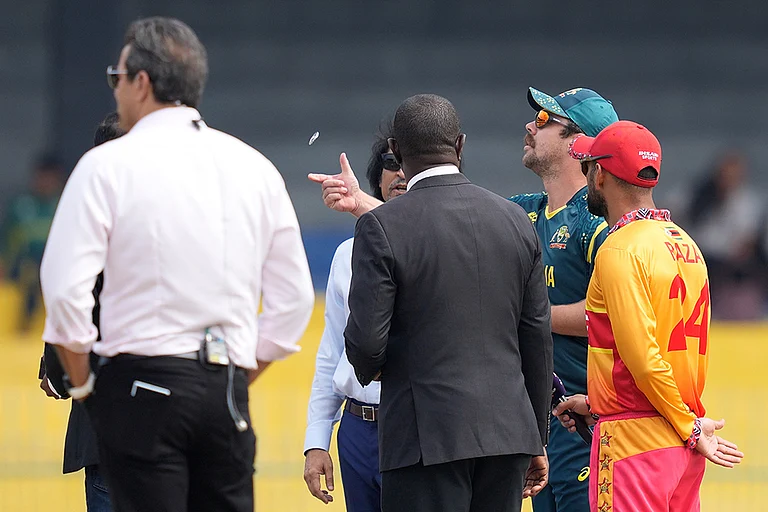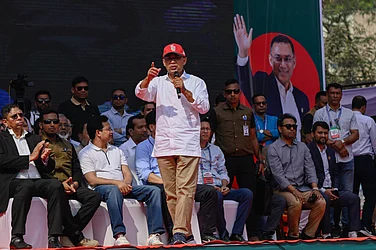The Indian and Chinese military personnel began to withdraw from their forward deployment at Gogra-Hot Springs areas in Eastern Ladakh on Thursday.
The Ministry of External Affairs (MEA) on Friday confirmed that the withdrawal process would be completed by Monday. The development comes after the 16th round of military-led talks on July 17.
The militaries of India and China have been locked into a stand-off at multiple locations in Eastern Ladakh since early 2020 when the two sides clashed at Pangong Tso lake. Later, the two sides clashed in Galwan Valley in which 20 Indian personnel and an unspecified number of Chinese personnel were killed.
The MEA said, "As per the agreement, the disengagement process in this area started on 08 September 2022 at 0830 hrs [8:30 am] and will be completed by 12 September 2022. The two sides have agreed to cease forward deployments in this area in a phased, coordinated and verified manner, resulting in the return of the troops of both sides to their respective areas.
"It has been agreed that all temporary structures and other allied infrastructure created in the area by both sides will be dismantled and mutually verified. The landforms in the area will be restored to pre-stand-off period by both sides."
It further said that the withdrawal "will be strictly observed and respected by both sides, and that there will be no unilateral change in status quo".
After over two years of military stand-off and multiple skirmishes, around 50-60,000 personnel from both the sides remain deployed on the frontlines along with war-waging equipment such as armour and artillery elements.
Earlier on Friday, the Chinese military also confirmed the withdrawal from the area that's called Patrolling Point 15 (PP 15) in military parlance in a "coordinated and planned way."
This marks a significant forward movement to end the standoff in Rastern Ladakh. The border conflict has become central to the bilateral relationship as India has clarified that peace at the border is central to the bilateral relationship's progress whereas the Chinese have repeatedly tried to separate the two, saying that the bilateral relationship should not be affected by the situation at the border.
"On 8th September, 2022, according to the consensus reached in the 16th Round of China-India Corps Commander Level Meeting, the Chinese and Indian troops in the area of Jianan Daban have begun to disengage in a coordinated and planned way, which is conducive to the peace and tranquility in the border areas”, a Chinese defence ministry press release issued here on Friday said.
Indian officials confirmed that Jianan Daban area referred to by the China’s military press release is the same as Patrolling Point 15 in the Gogra-Hot Springs area.
The announcement came around a week ahead of the annual summit of the Shanghai Cooperation Organisation (SCO) in Uzbekistan which is expected to be attended by Prime Minister Narendra Modi and Chinese President Xi Jinping among other leaders of the grouping. There is speculation about a possible meeting between Modi and Xi on the sidelines of the summit though there is no official word on it from either side.
Official sources told PTI in Delhi that the withdrawal of troops from PP-15 began on Thursday morning and the local commanders from both sides are working out the modalities for the subsequent measures. Following the 16th round of Corps Commander-level talks, ground commanders of both sides held a series of negotiations on the nitty-gritty of the disengagement process.
The sources said India will keep pressing for the resolution of pending issues in the remaining friction points of Depsang and Demchok.
As a result of a series of military and diplomatic talks, the two sides completed the disengagement process last year on the north and south banks of the Pangong lake and in the Gogra area.
The disengagement in the Pangong Lake area had taken place in February last year while the withdrawal of troops and equipment in PP 17 (A) in Gogra took place in August last year.
The 16th round of military talks was held 10 days after External Affairs Minister S Jaishankar met his Chinese counterpart Wang Yi in Bali, Indonesia.
(With PTI inputs)


























